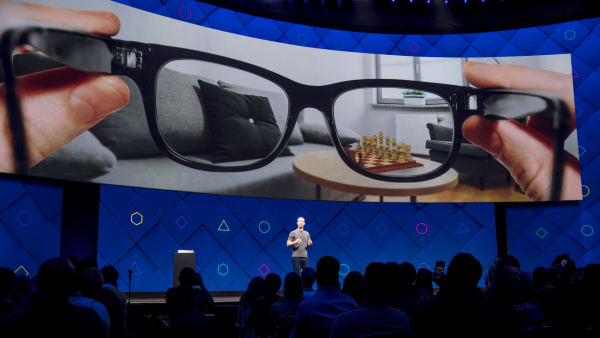Meta Planning Metaverse Advertising
Meta is already running a lucrative advertising business with its social media portals Facebook and Instagram. Now the company is keen on monetizing a new frontier it has invested heavily in – the metaverse. Meta’s AR Vice President Alex Himel believes immersive advertising presents a major opportunity for the company.
In a roadmap recently presented internally to staff and published by The Verge magazine, Meta executives delved into the monetization of the metaverse where the company revealed it has a plan.

Himel is expecting more revenue per user from the metaverse than from conventional social media networks like Facebook and Instagram. Meta’s immersive advertising roadmap will include selling virtual goods, selling optional add-ons such as cloud backups, and augmented reality (AR) advertising.
Meta still managed to rake in $116.6 billion in 2022, which was a rather difficult year characterized by declining ad revenues, stock market setbacks, and sharp criticism of its metaverse strategy by investors.
Himel expressed optimism in metaverse advertising, in whatever form, stating that the company would have a very good advertising business. He described how it would be easy to integrate ads into augmented reality experiences. He stated that the company had developed an impressive capability for tracking conversions which is “close to 100%”.
Although Meta has had some good traction with virtual reality headsets, it is yet to release an augmented reality product. The first such headsets are expected to hit the market in a few years’ time.
Himel told Meta staff that he is seeing a market potential of close to 2 billion headsets and several hundred million smartwatches sold every year.
Meta has a two-pronged strategy for hacking the metaverse market. It will focus on two tiers of products, high-quality products, and low-quality low-cost products. This strategy is already apparent in its Quest line where it already has the cheaper Quest 2 (and soon Quest 3) headsets and the premium work-focused Quest Pro headset. The Quest 2 and later on Quest 3 are affordable mass-market products while the costlier Quest Pro headset has more capabilities and gives users a better immersive experience.
Meta is planning to launch two product lines in 2027. One, dubbed “Innovation”, will feature very sophisticated Augmented Reality headsets that will be capable of projecting high-quality holograms of avatars into the real world.
Then there is the “Scale” product line featuring lower-cost devices. These are glasses that will receive input from neural signals on the wearer’s wrist, either via a smartwatch or wristband.
AR Ads in the Field of View?
Immersive advertising may be a success or a flop depending on its aggressiveness. AR devices are billed as the next frontier of computing due to their practicality. While virtual reality headsets immerse the user into the digital environment and divorce them from the physical environment, augmented reality glasses keep you in the physical world but can overlay digital elements in your field of vision. AR glasses are also more socially acceptable, depending on their form factors, and will be worn just like conventional glasses. However, if there is aggressive and persistent advertising on the wearer’s field of vision, this can be off-putting and may drive some people to ditch them.
There are some useful aspects of the technology and advertising if used well such as when one is purchasing a product in the store where preferred accessories can be displayed upon request. Meta says AR advertising presents a huge opportunity that will, perhaps, rival even the smartphone ad market.
https://virtualrealitytimes.com/2023/03/11/meta-planning-metaverse-advertising/https://virtualrealitytimes.com/wp-content/uploads/2022/12/Meta-Spending-Heavily-in-its-Augmented-Reality-Glasses-Project-600x338.pnghttps://virtualrealitytimes.com/wp-content/uploads/2022/12/Meta-Spending-Heavily-in-its-Augmented-Reality-Glasses-Project-150x90.pngBusinessMeta is already running a lucrative advertising business with its social media portals Facebook and Instagram. Now the company is keen on monetizing a new frontier it has invested heavily in - the metaverse. Meta’s AR Vice President Alex Himel believes immersive advertising presents a major opportunity for the...Rob GrantRob Grant[email protected]SubscriberVirtual Reality Times - Metaverse & VR
